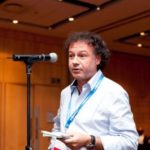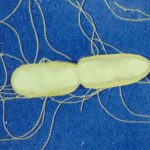Dr. Jean-Marc Collard is a scientist (36 years of experience on 3 different continents) with 130 peer-reviewed publications and extensive experience in bacteriology, molecular biology, public health and biosafety/biosecurity. During his two post-doc positions (1989-2000), he addressed biological safety issues (metal pollution/bioremediation, gene transfer and risk of dissemination of GMM and GMO*1) and was also committed Belgian Scientific expert to the Protocol to strengthen the Biological and Toxin Weapons Convention (Belgian Coordination Group managed by the Ministry of Foreign Affairs, Disarmament Unit) and participated to EU R&D Activities on Countering the Effects of Biological and Chemical Terrorism. From 2001, he headed National Reference Centers (Salmonella/Shigella, Neisseria meningitidis, Listeria) for seven years at Institute of Public Health (currently Sciensano) in Brussels, Belgium. From 2008, he extended his expertise in Africa (Niger and Madagascar, Pasteur Network), where he directed NRCs (bacterial meningitis and flu in Niger), coordinated or participated in important field and research projects in bacteriology (MenAfriCar, PAGe, Epidemic Meningitis Control FSP, MVP), antimicrobial resistance (CHARLI, Birdy, Birdy II), and dysbiotic microbiota in malnourished children (Afribiota, Malinea), including cohort studies with over 2000 children. The results of these projects have been published in landmark scientific reviews, such as Lancet Global Health, J Allergy Clin Immunol, CID, PNAS, Microbiome or PLOS NTD. As an expert in bacteriology, he has collaborated with the WHO, the UNICEF, the Ministry of Health in Niger, the French Ministry of Foreign Affairs, the Wellcome Trust, and the Gates Foundation. Back in Belgium for one year (2013-2014), he set up the crisis cell and the BCP *2 at the Institute of Public Health. Scientifically, his main expertise is antimicrobial-resistant Gram-negative bacteria and their transmission from mother to child, managing their detection by different cutting-edge technologies (i.e. WGS), including LAMP technology as well as microbiota investigation in children. He also assessed the usefulness and the accuracy of MALDI-TOF mass-spectrometer to identify mosquito vector species. During his two years (2020-2022) in the Center for Microbes Development and Health–Institut Pasteur of Shanghai, China he focused on the construction of the intestinal microbiota in infants leading to homeostasis or dysbiosis. He developed a simplified workflow (culturomics) for large-scale cultivation of gut microbes using anaerobic, microaerophilic and aerobic conditions. Since September 2022, he integrated the Enteric Bacterial Pathogens Unit, at the Department of Global Health of the Institut Pasteur.
*1 Genetically modified micro-organisms and genetically modified organisms
*2 https://www.sciensano.be/sites/default/files/cellule_de_crise_wiv-isp.pdf and business continuity plan





